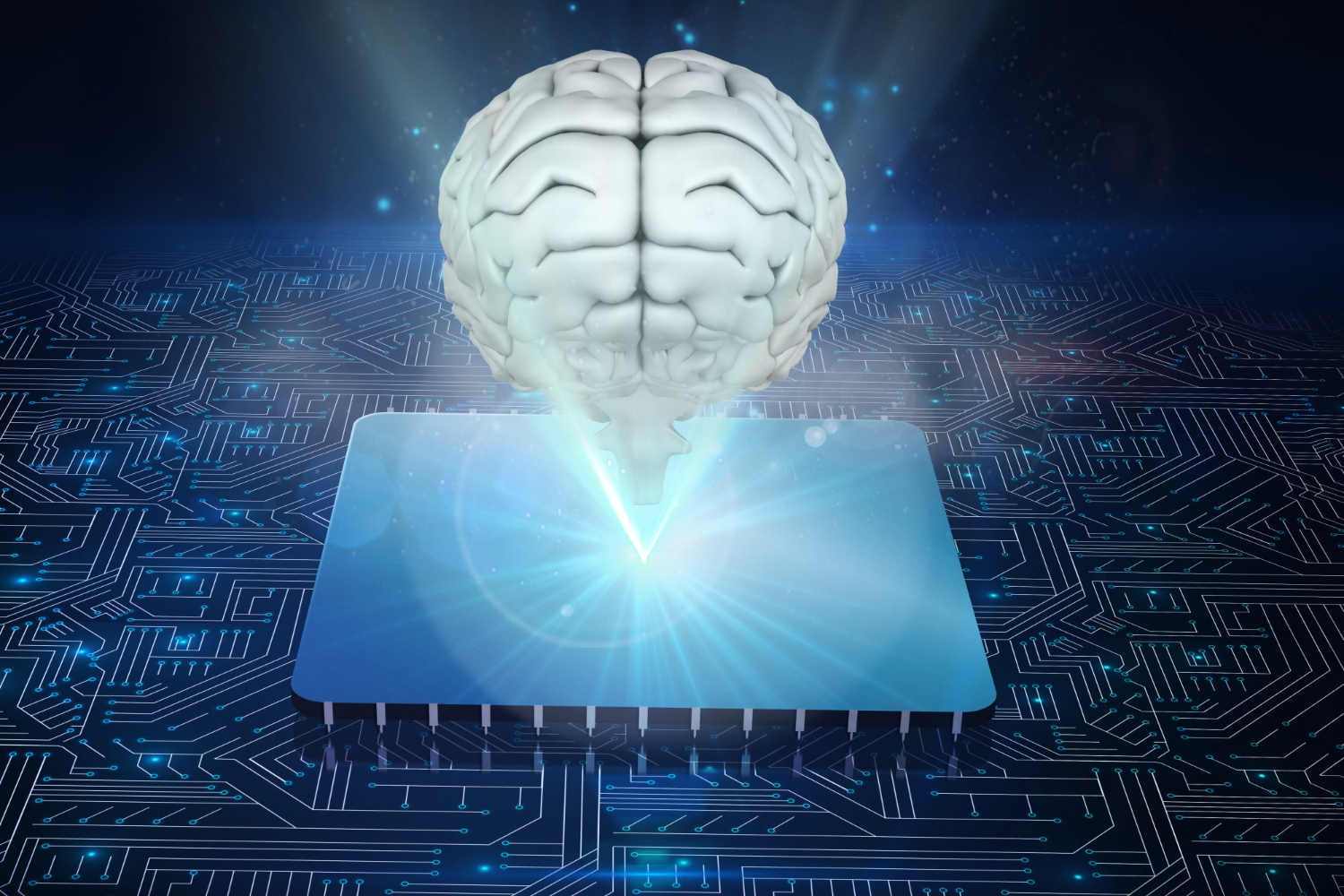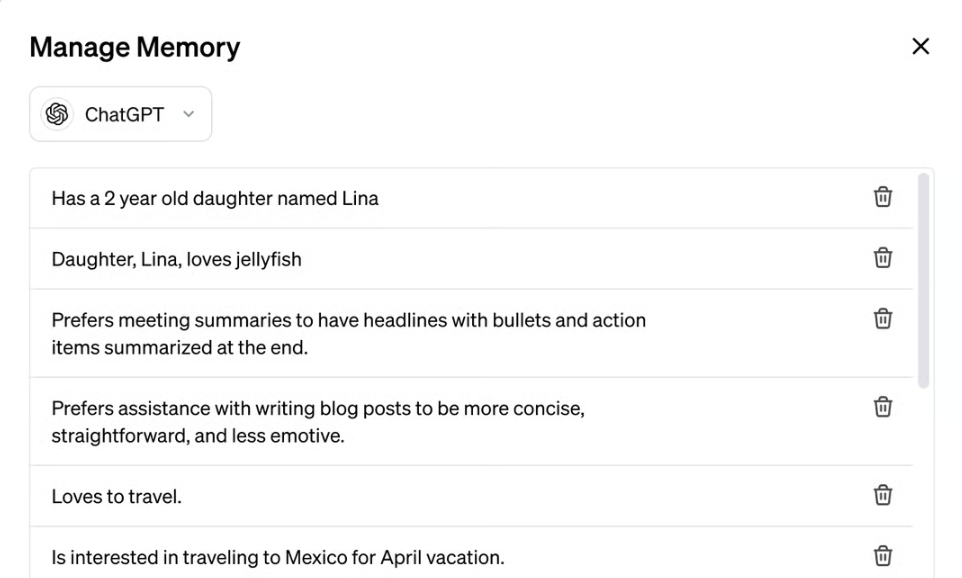 AI
AI
 AI
AI
 AI
AI
OpenAI today announced that it’s giving ChatGPT and other GPT-4-based models a memory feature, which will enable it to remember information from its previous conversions with users.
The idea is that, by remembering past interactions, ChatGPT will be better able to avoid repetition, enhancing the overall quality of its conversations. The company said it’s planning to make the memory feature available to both free and paid users, who will be given the ability to edit any information they don’t want to be saved.
Users will also be able to turn off the memory feature entirely, if they desire. Apparently, this functionality will be as simple as asking ChatGPT in natural language to switch off the memory capability. However, users can also do it manually by going to Settings > Personalization > Manage Memory, and switching it off there.
OpenAI said the general idea with memory is that it will help ChatGPT to have better conversations by adding context from earlier discussions. With this context, OpenAI says the bot can provide more accurate and useful information to users. The Memories feature will also be used to improve the company’s large language models, it said.
For now, the feature is currently in beta, limited to a small group of ChatGPT users and Plus subscribers, with a wider rollout planned later in the year.
In addition, the memory capabilities will also be made available in GPT-powered chatbots, meaning that developers who leverage the technology to power their own virtual assistants and customer services bots will also be able to take advantage of it. Like regular users, developers will have the choice to enable or disable the feature. OpenAI says users will also have a choice, as they must have Memory enabled in their own profile in order to interact with other, memory-enabled GPT bots.
However, it reassured users that it won’t share user’s memories with developers. The memories stored within ChatGPT won’t be shared with GPT bots either, and vice versa, the company added. Instead, each GPT will have its own memory.

Users will have the ability to delete any specific details they don’t want ChatGPT to remember
Alongside the new feature, OpenAI is introducing a function called Temporary Chat, which will allow users to chat to the chatbot without memory enabled. So no data will be stored from temporary chats, and the information won’t be used by OpenAI to train its LLMs. The company explained that it’s similar to opening an incognito tab in Google Chrome.
The introduction of memory comes after OpenAI introduced another personalization feature known as Custom Instructions for both free and paid users in November. With Custom Instructions, users can provide information to ChatGPT and tell it how they would like it to respond. For instance, users can tell the bot to provide summaries using bullet points to all of its responses.
Support our open free content by sharing and engaging with our content and community.
Where Technology Leaders Connect, Share Intelligence & Create Opportunities
SiliconANGLE Media is a recognized leader in digital media innovation serving innovative audiences and brands, bringing together cutting-edge technology, influential content, strategic insights and real-time audience engagement. As the parent company of SiliconANGLE, theCUBE Network, theCUBE Research, CUBE365, theCUBE AI and theCUBE SuperStudios — such as those established in Silicon Valley and the New York Stock Exchange (NYSE) — SiliconANGLE Media operates at the intersection of media, technology, and AI. .
Founded by tech visionaries John Furrier and Dave Vellante, SiliconANGLE Media has built a powerful ecosystem of industry-leading digital media brands, with a reach of 15+ million elite tech professionals. The company’s new, proprietary theCUBE AI Video cloud is breaking ground in audience interaction, leveraging theCUBEai.com neural network to help technology companies make data-driven decisions and stay at the forefront of industry conversations.